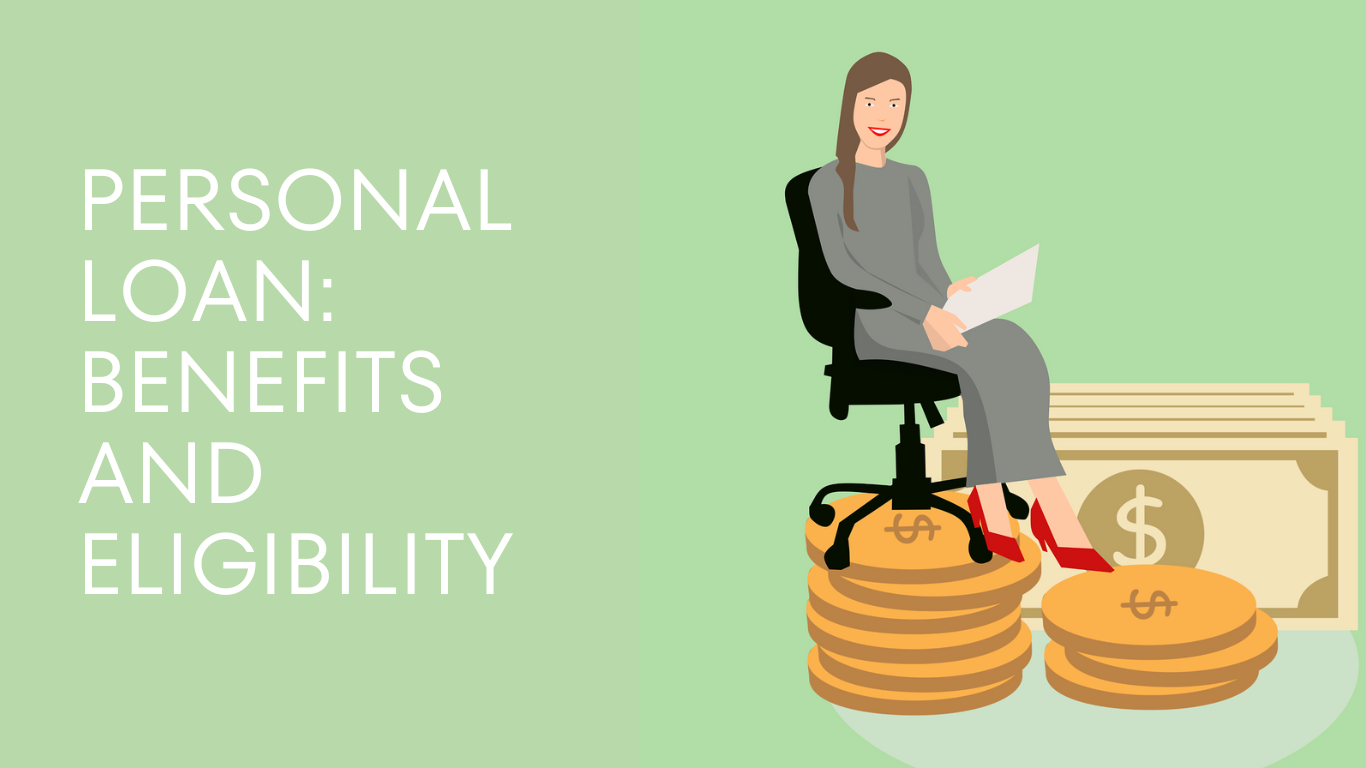
Individuals take out personal loans from banks or non-banking financial corporations to fulfil their own needs (NBFC). Income, credit and job history, repayment capacity, and other factors all play a role. Personal loans assist families with a variety of needs, including buying a home or car, paying for their children’s education, and dealing with medical crises, etc. Here are the various benefits of availing personal loan in India.
Benefits of personal loan
No collateral required
Because this is an unsecured loan, no asset collateral is required. It is granted based on your credit history and ability to repay.
Less documentation
Because of the lengthy documentation process, many people avoid applying for personal loans. Personal loans, on the other hand, are approved with minimal documentation.
Quick loan disbursement
Loan payout now takes only a few hours. If the bank believes you have the ability to repay the loan within the specified time frame and need the money for a legitimate purpose, acquiring a personal loan is simple.
Fixed rate of interest over the tenure
Personal loan interest rates are set at the beginning of the term and remain constant throughout. As a result, loan applicants can easily budget for future EMIs.
Flexible loan tenure
Loan terms for personal loans range from one to five years. As a result, you have the freedom to determine your repayment plan’s lifespan. To save money on interest, choose a loan with a shorter term.
Easy EMI facility
Equated Monthly Installments simplify the concept of a loan. Personal loans, too, have simple EMIs and allow you to repay the principal amount over time.
Multipurpose loan
Personal loans, unlike home or car loans, can be used to finance practically any goal.
There are numerous advantages to taking out a personal loan, but be sure you meet the qualifying requirements in the following chapter.
Eligibility criteria
Because a personal loan is an “unsecured loan,” banks perform extensive due diligence. They check your financial stability first and foremost.
Your credit score, monthly income, and other ongoing EMIs, among other things, determine your loan eligibility. These eligibility conditions differ from one lender to the next.
The following are the eligibility requirements:
Age limit
The age restriction for salaried employees is 21-58 years old. A self-employed businessperson or professional can be between the ages of 25 and 65.
Monthly income
The amount of your net monthly salary will determine whether or not your loan will be approved. Some lenders have a monthly income minimum requirement.
Nature of employment
Salaried employees, professionals, self-employed people, and professionals are some of the most common job kinds.
Employment term
An approval may be tough to obtain if you have recently changed jobs.
Many lending institutions, for example, would approve loans for individuals having at least two years of work experience and at least one year with their present employer.
Self-employed professionals, on the other hand, must have a minimum of three years of experience. Some employers look at your entire employment history.
Credit score
This is a credit score given to you by a credit reporting agency (for example companies such as CIBIL, Equifax, High Mark). It provides a prospective lending institution with information about your borrowing history.
A good credit score also provides you more negotiating power when it comes to loan terms. Some banks need a minimum CIBIL Score of 700, while others require 750. A score of 700-900 is considered desirable.
Documents required
Although the documentation required by each lender differs, you must submit the following documents with your application form:
- Income proof
- Salary slips
- Bank statements
- Latest Income-Tax Returns
- Credit report
- Age proof
- Proof of address
- Photo identification proof
Disbursal of loan amount
It is usually disbursed within 7 business days of the lender receiving the loan application. Once accepted, you can choose to receive an account payee cheque/draft in the amount of the loan or have the funds electronically deposited into your savings account.
Foreclosure charges
If you pay off your loan early, the lender may charge you foreclosure fees. This fee is normally one to two percent of the outstanding balance.
Now that you’ve learned more about Personal Loans, you can compare loan offers from several lenders, apply for a Personal Loan online, and acquire the funds you need to cover your costs.


